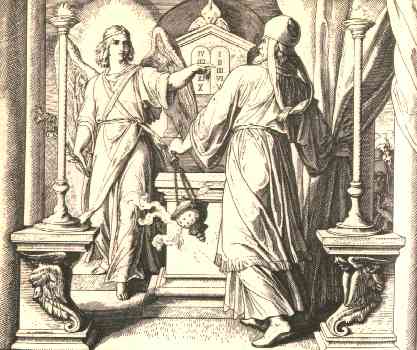Unknown to almost all Christians, the word evangelize is used 55 times in the New Testament. This truth is hidden from most Christians not due to lack of reading Scripture, as some might guess, but due to a burying of the word through the translation process. In fact, until recently there was not a single modern translation that included this word. The Holman Christian Standard Bible has begun the task of bringing this word back into our translations, though the use of this word 6 times, but that still leaves 49 buried instances of the word.
Each Tuesday we are looking at verses that include the Greek word evangelize. Today we look at Luke 1:19.
Once again, I cannot say thank you enough to Dr. Thomas Johnston for opening my eyes to this truth. Although I plan to scratch the surface each week in regards to this translation issue, his depth of research and knowledge in this area is staggering. Without his pointing out this to me, I would be blind to this truth. His books of notes on evangelism is a must for any pastoral library.
Luke 1:19
And the angel answered and said to him, “I am Gabriel, who stands in the presence of God, and was sent to speak to you and bring you these glad tidings. (NKJV)
Of the many passages we will look at, this is one that I feel the removal of the word evangelize does not hinder the understanding. Evangelism is the speaking of glad tidings (good news). In many translations that is exactly what is being described. The meaning has not been changed.
This is also a message delivered directly from the mouth of an angelic being, which is something that none of us are, or can relate to. No matter what word is used it would be clear that the message was coming from a being, and in a method that we cannot replicate.
The question would have to be asked, though, is anything gained by translating this another way than evangelize?
The book of Luke alone uses the Word evangelize 10 different times. Of these encounters two are by angels, one is John the Baptist, six are from Jesus, and one speaks of the disciples. A consistent translation of the word evangelize would show the readers the continuity between the messengers of God, the work of Christ and us as disciples. We would see that we are to be obedient just as Gabriel was. We are to speak in the same bold manner as the one who “stands in the presence of God”.
Although the meaning is not lost in the removal of the word evangelize in Luke 1:19, our understanding is richer with it there.
Yours in Christ,
J. W. Willard
